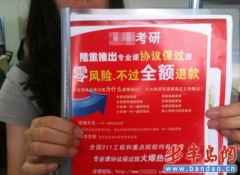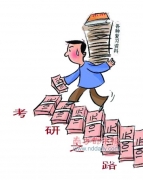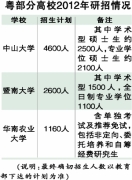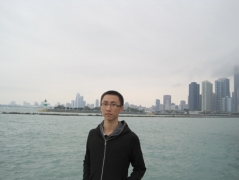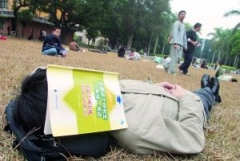|
||||
|
在以美国次贷危机引发的世界金融危机和经济危机爆发以来,世界各国的汇率随金融市场的波动而剧烈波动,给各国的经济稳定带来极大的不利影响。特别是后危机时代美国经济复苏缓慢,失业严重,美国国会少数议员为了转移国内视线,无端指责中国操纵人民币汇率,以人民币汇率大幅低估来获取贸易顺差。上月底,美国众议院甚至通过试图以贸易制裁中国压迫人民币大幅升值的法案。近期,美国通过量化宽松货币政策诱使美元对世界各国货币大幅度贬值,一场新的货币大战或隐或现。美国国会不断向中国施压,要求人民币升值。美国财政部还要求国际货币基金组织进行干预,以促使中国实施灵活的汇率政策。巴西、日本和其他亚洲经济体的各央行也已为稳定本国货币而出手干预。为了及时准确地反映人民币综合汇率的整体走势,以客观的事实和科学的依据为国家制定汇率政策,为企业、机构和个人规避汇率风险,正确引导公众的汇率预期,开发人民币汇率指数具有重要现实意义和战略意义。 The global economy How to stop a currency war Keep calm, don’t expect quick fixes and above all don’t unleash a trade fight with China Economist Oct 14th 2010 IN RECENT weeks the world economy has been on a war footing, at least rhetorically. Ever since Brazil’s finance minister, Guido Mantega, declared on September 27th that an “international currency war” had broken out, the global economic debate has been recast in battlefield terms, not just by excitable headline-writers, but by officials themselves. Gone is the fuzzy rhetoric about co-operation to boost global growth. A more combative tone has taken hold. Countries blame each other for distorting global demand, with weapons that range from quantitative (量的;用量表示的;与数量有关的) easing (printing money to buy bonds) to currency intervention and capital controls. Behind all the smoke and fury, there are in fact three battles. The biggest one is over China’s unwillingness to allow the yuan to rise more quickly. American and European officials have sounded tougher about the “damaging dynamic” caused by China’s undervalued currency. Last month the House of Representatives passed a law allowing firms to seek tariff protection against countries with undervalued currencies, with a huge bipartisan(两个政党的) majority. China’s “unfair” trade practices have become a hot topic in the mid-term elections. A second flashpoint is the rich world’s monetary policy, particularly the prospect that central banks may soon restart printing money to buy government bonds. The dollar has fallen as financial markets expect the Federal Reserve to act fastest and most boldly. The euro has soared as officials at the European Central Bank show least enthusiasm for such a shift. In China’s eyes (and, sotto voce, those of many other emerging-market governments), quantitative easing creates a gross distortion in the world economy as investors rush elsewhere, especially into emerging economies, in search of higher yields. A third area of contention comes from how the developing countries respond to these capital flows. Rather than let their exchange rates soar, many governments have intervened to buy foreign currency, or imposed taxes on foreign capital inflows. Brazil recently doubled a tax on foreign purchases of its domestic debt. This week Thailand announced a new 15% withholding tax for foreign investors in its bonds. Jaw-jaw, please For now, these skirmishes fall far short of a real currency war. Many of the “weapons” look less menacing on closer inspection. The capital-inflow controls are modest. In the rich world only Japan has recently resorted to currency intervention, and so far only once. Nor is there much risk of an imminent (危险等逼近的;即将发生的)descent into trade retaliation(报复). Even in America, tariffs against China are still, with luck, a long way off—both because the currency bill is milder than it sounds and because it has yet to be passed by the Senate or signed by Barack Obama. Still, there is no room for complacency(满足;自满) Today’s phoney war could quickly turn into a real dogfight. The conditions driving the divergence(分歧) of economic policies—in particular, sluggish(怠惰的 )growth in the rich world—are likely to last for years. As fiscal austerity(朴素, 节俭;苦行)kicks in, the appeal of using a cheaper currency as a source of demand will increase, and the pressure on politicians to treat China as a scapegoat will rise. And if the flood of foreign capital intensifies, developing countries may be forced to choose between losing competitiveness, truly draconian(古代执政官的, 严峻的)capital controls or allowing their economies to overheat. What needs to happen is fairly clear. Global demand needs rebalancing, away from indebted rich economies and towards more spending in the emerging world. Structural reforms to boost spending in those surplus economies will help, but their real exchange rates also need to appreciate(增值). And, yes, the Chinese yuan is too low. That is hurting not just the West but also other emerging countries (especially those with floating exchange rates) and indeed China itself, which needs to get more of its growth from domestic consumption. It is also clear that this will not be a painless process. China is right to worry about instability if workers in exporting companies lose their jobs. And even reasonable choices—such as the rich world’s mix of fiscal austerity and loose monetary policy—will have an uncomfortable impact on small, open emerging economies, in the form of unwelcome capital inflows. This flood of capital will be less devastating to them than the harm they would suffer if the West descended into deflation(通货紧缩)and stagnation, but it can still cause problems. Collective Seoul-searching All this cries out for a multilateral approach, in which institutions such as the IMF and the G20 forge consensus among the big economies. The hitch is that the multilateral route has, so far, achieved little. Hence the chorus calling for a different line of attack—one that focuses on getting tough with China, through either retaliatory capital controls (such as not allowing China to buy American Treasury bonds) or trade sanctions([ pl.]国际制裁). And it is not just the usual protectionist suspects: even some free-traders reckon that economic violence is the only way to shock China out of its self-harming obstinacy(顽固;(病痛等)难治)(and to stop a more widespread protectionist reaction later). This newspaper is not convinced. The threats look like either unworkable bluffs (how can China be stopped from buying Treasuries, the most widely traded asset in the world’s financial markets?) or dangerous provocations(刺激;用于尝试性解决问题). Confronted with a trade ultimatum(最后通牒), the Beijing regime, puffed up in its G2 hubris, may well reckon it is cheaper politically to retaliate to the United States in kind. That is how trade wars start. Anyway, to focus on America and China is to misunderstand the nature of the problem. The currency wars are about more than one villain and one victim. Rather, redouble multilateral efforts behind the scenes, especially by bringing in the emerging countries hurt by China’s policy. Brazil and others have only just begun to speak out. South Korea is hosting the G20 next month. Use the Seoul summit as a prompt, not to create some new Plaza Accord (today’s tensions are too complex to settle in a grand peace treaty of the sort hammered out by just five countries in New York in 1985) but as a way to clarify the debate and keep up the pressure. It will get fewer headlines; but this is a war that is best averted, not fought. Leaders Related items Currency wars: Fumbling towards a truce Economist Oct 14th 2010 China's reserves: In need of a bigger boat Economist Oct 14th 2010 |
| [发布者:dongdong] | |||
|
 当前位置:
当前位置:



